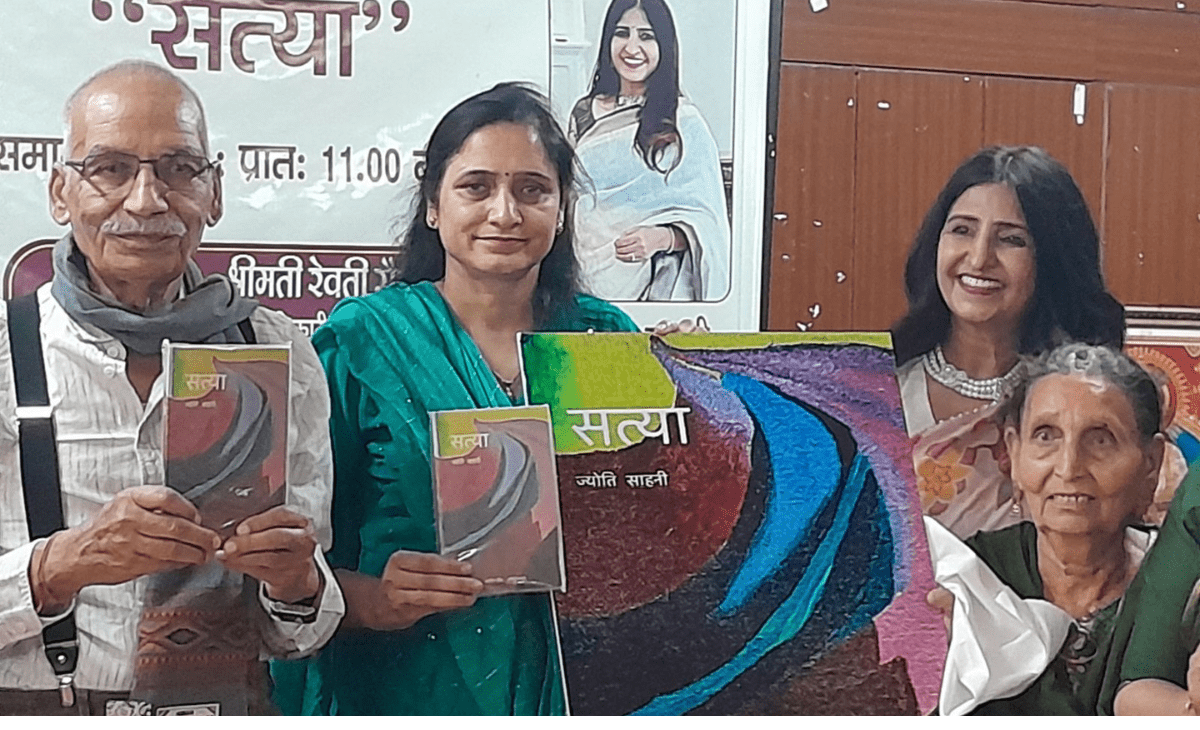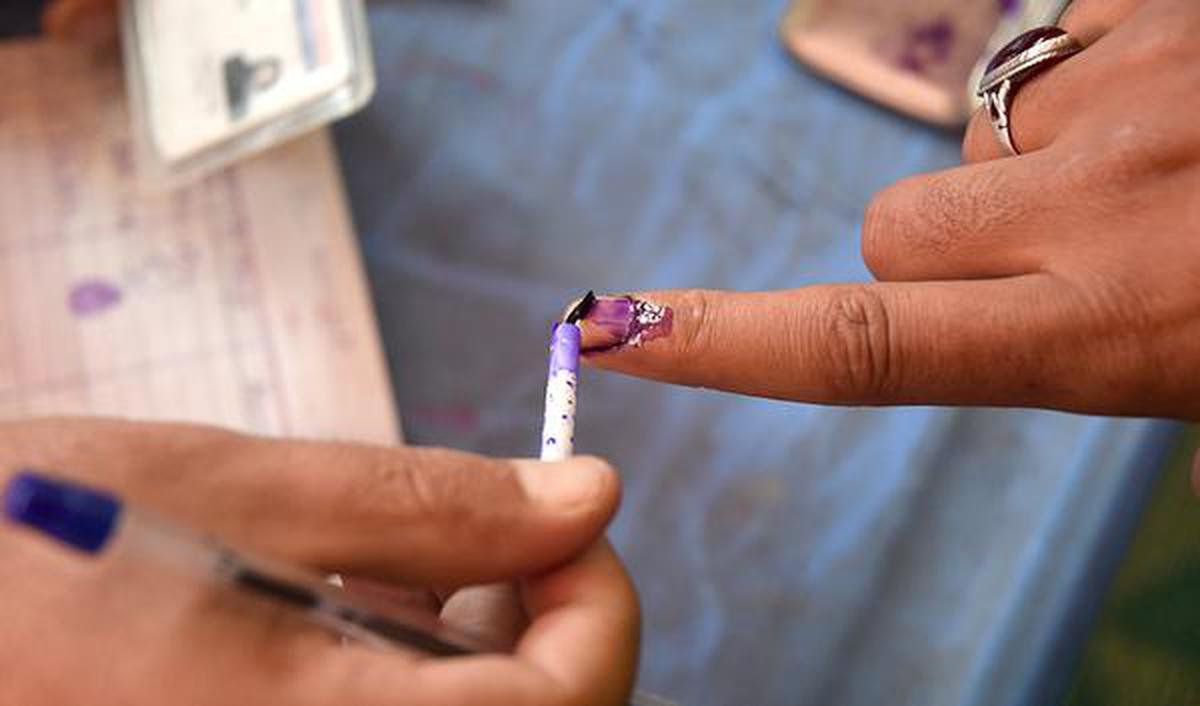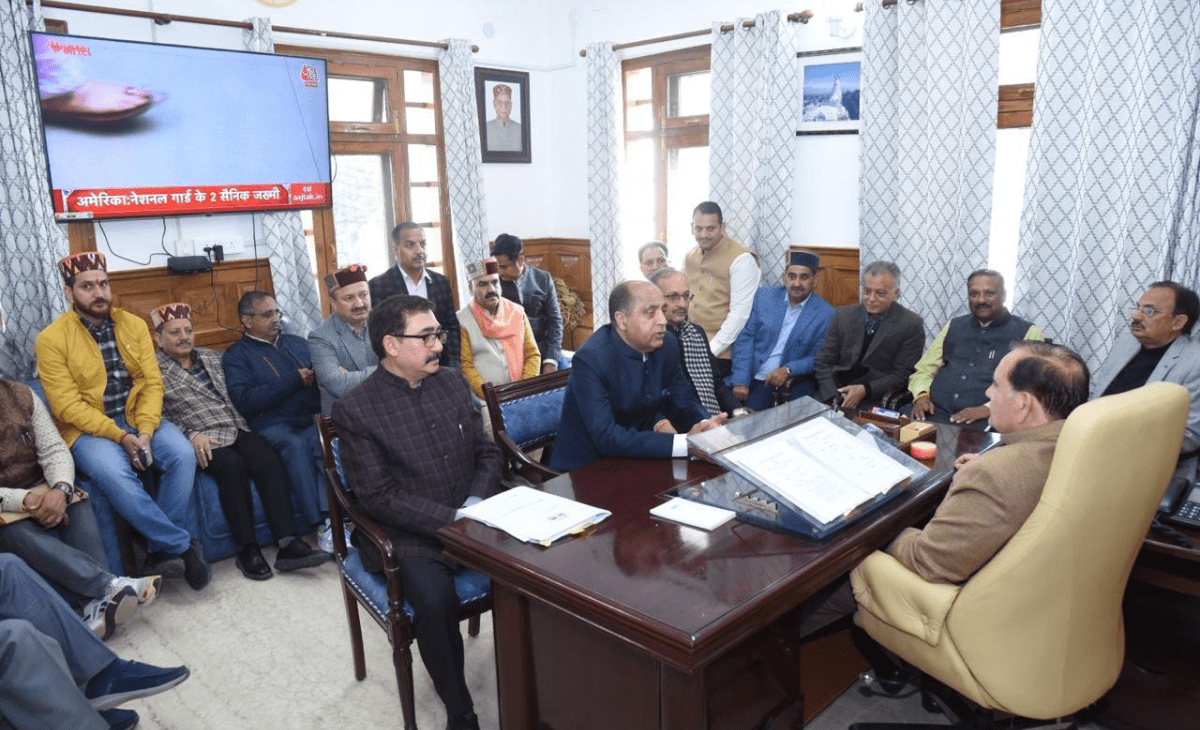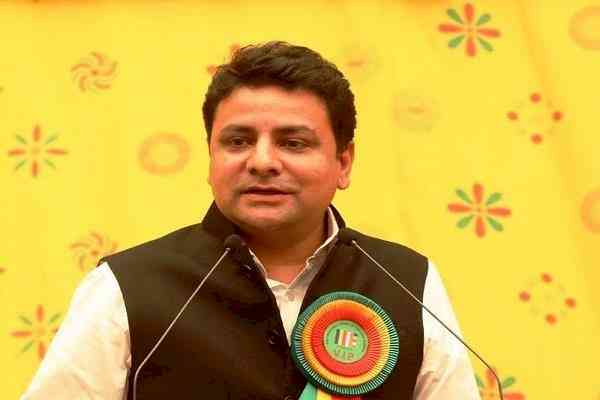MANDI: The third poetry collection of Jyoti Sahni, a Hindi poet originally from Mandi in Himachal Pradesh and currently based in New Jersey, USA, was officially released at the District Institute of Education and Training (DIET) auditorium in Mandi.
The book launch ceremony featured District Language Officer Revati Saini as the chief guest, while eminent litterateur Dr Gangaram Raji presided over the function. Supreme Court senior advocate Pandit Manohar Lal graced the occasion as the guest of honour.
The poetry collection, titled Satya, was formally released by Jyoti Sahni’s mother Satya Devi, along with Revati Saini, Dr Gangaram Raji, Pandit Manohar Lal and Dr Vijay Vishal.

Honouring heritage beyond borders
Speaking at the event, chief guest Revati Saini praised Jyoti Sahni for remaining deeply rooted in her Indian culture and literary heritage despite living thousands of miles away. “Her commitment to her Indian identity, values, and traditions is truly inspiring,” she said.
Saini added that Jyoti is carrying forward the literary and philosophical legacy of her maternal grandfather, Pandit Bhawani Dutt Shastri, a renowned scholar who translated the Bhagavad Gita and Upanishads into the local Mandeali dialect. These values, she noted, are also being instilled in Sahni’s children.
In her address, Jyoti Sahni shared that while she now lives in the US, the memories of her hometown Mandi are etched deeply in her heart. “Whenever I get a chance, I try to return to my roots. These mountains keep calling me back,” she said emotionally.
Deep dive into ‘Satya’
On the occasion, noted literary critic Murari Sharma presented an analytical review of Satya. He emphasised that a writer’s work is often the reader’s first introduction to them, and for many, Satya marks a profound entry point into Sahni’s literary world.
“These poems poignantly reflect the emotions of exile and the yearning for roots,” Sharma observed. “They are rich in imagery, metaphor, rhythm, and emotional depth. Far removed from mainstream contemporary Hindi poetry, Satya represents a unique voice in diaspora literature.”
He further stated that the poems revisit childhood memories, bringing to life the narrow lanes of Mandi, and echo a persistent hope for a better tomorrow. “Rather than measuring these works against conventional modern Hindi poetry, they should be appreciated within the landscape of diaspora writing.”
Mandi and memory: A bond unbroken
Renowned poet and critic Dr Vijay Vishal noted that Sahni’s poems, although penned in a foreign land, remain spiritually and emotionally connected to her roots in Mandi. “Her verses preserve the scent of her homeland, despite the geographical distance.”
Presiding guest Dr Gangaram Raji said that Jyoti Sahni, as the granddaughter of the revered scholar Pandit Bhawani Dutt Shastri, has inherited a deep literary sensibility. “Even as a member of the Indian diaspora, her dedication to her birthplace is unwavering,” he said.
Guest of honour Pandit Manohar Lal highlighted the role of writers in society, stressing that they must remain independent of political influences and consistently stand in favour of truth and public welfare.
Family and community presence
The event was coordinated by Sarita Sharma, who extended a warm welcome and expressed gratitude to all attendees. Jyoti Sahni’s mother Satya Devi, husband Jeetan Sahni, daughter Tanisha, son Harshul, and several family members and well-wishers were also present to celebrate the occasion.
Multilingual Poetry Reading Enriches the Event
A multilingual poetry recital was held as part of the ceremony, with participation from several notable poets, including Krishna Chandra Mahadevia, Pawan Chauhan, Rattan Lal Sharma, Surendra Mishra, Dr Rakesh Kapoor, Jagdish Kapoor, Murari Sharma, Priyamvada Sharma, Latesh Kumar, Rajendra Thakur, Nirmala Chandel, Krishna Thakur, Vidya Sharma, Purnesh Gautam, Shukla Sharma, Vijay Vishal, Manohar Anmol and Savita Kumari.
Munish Sood





